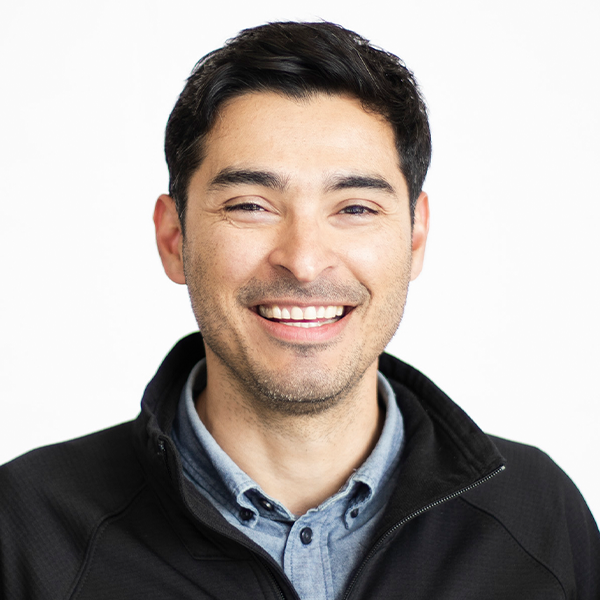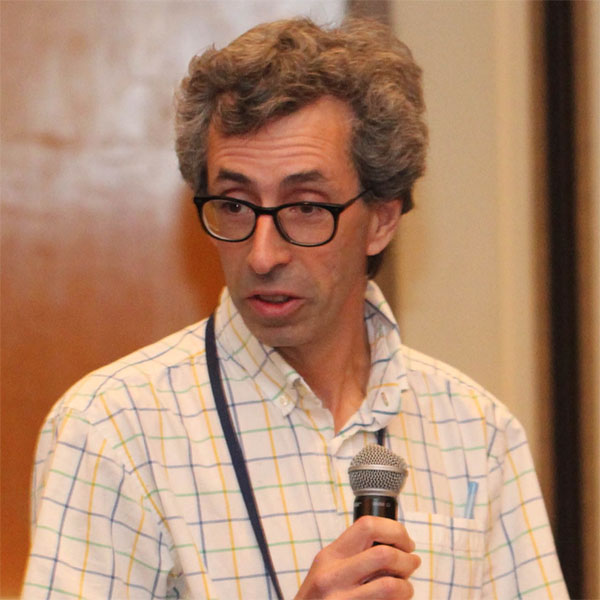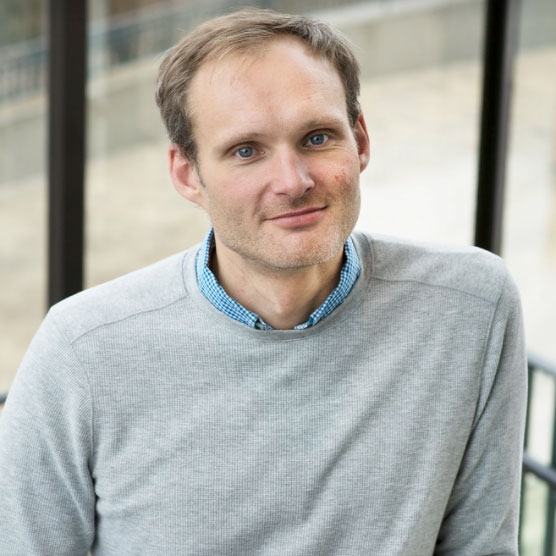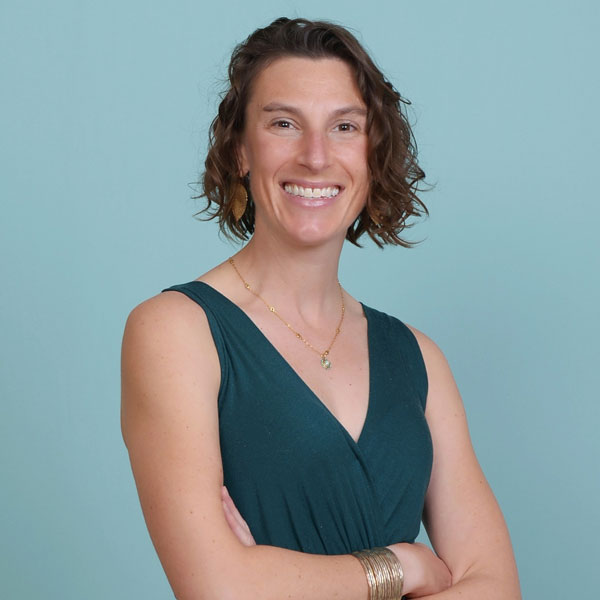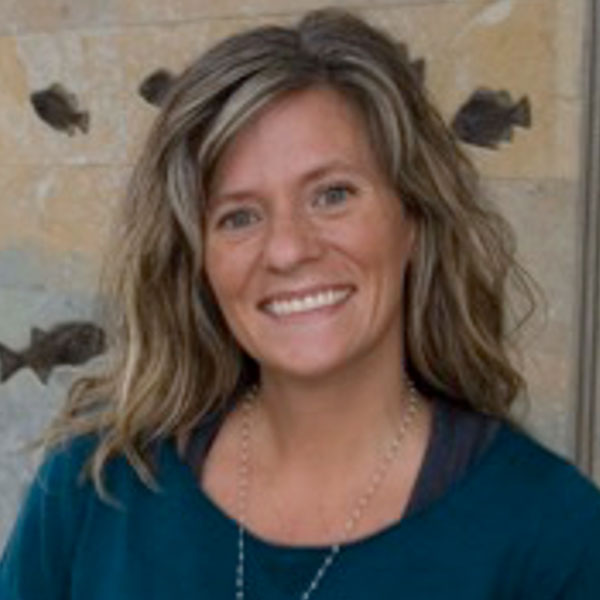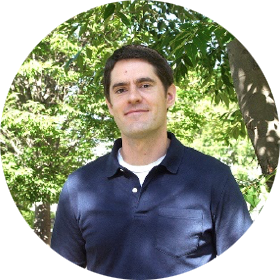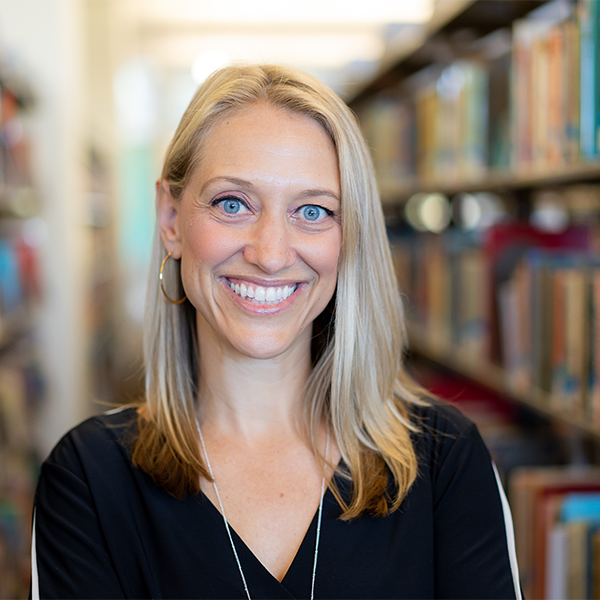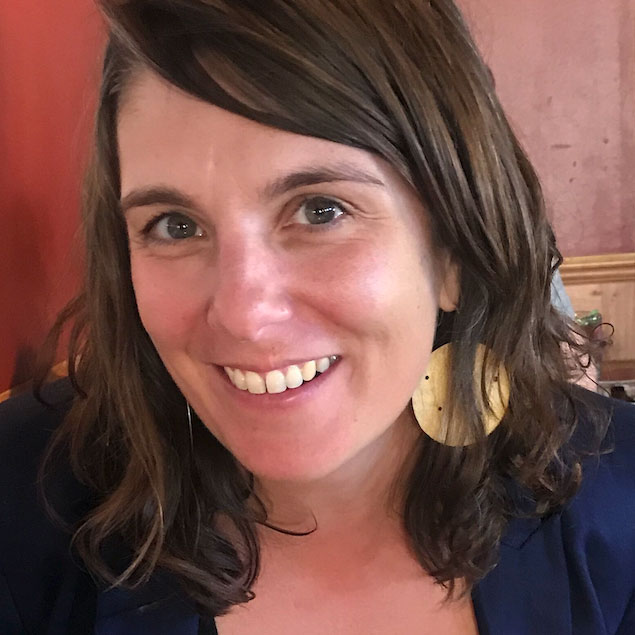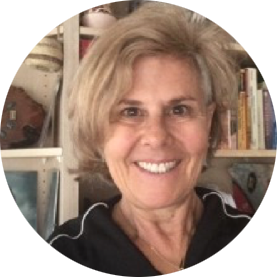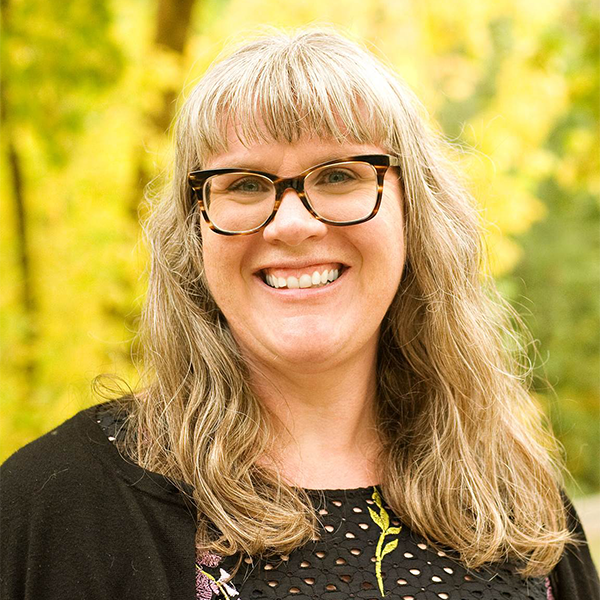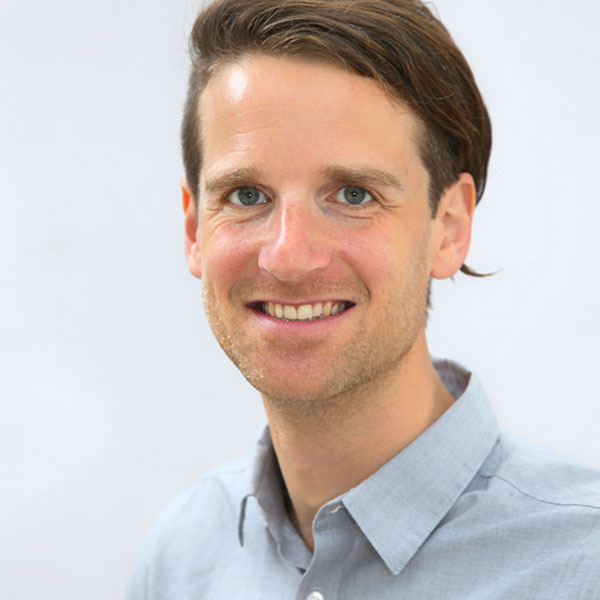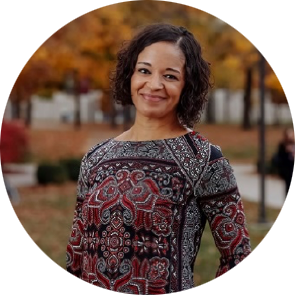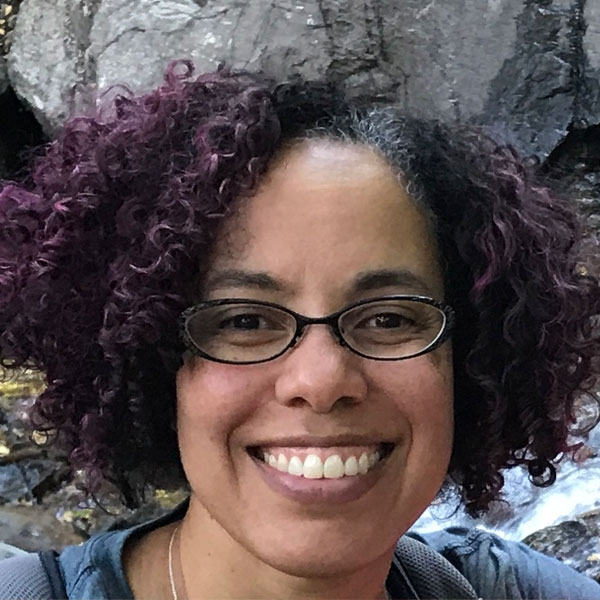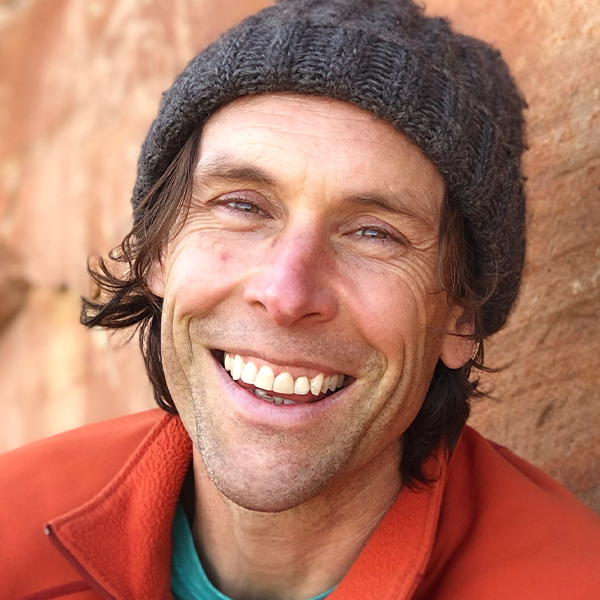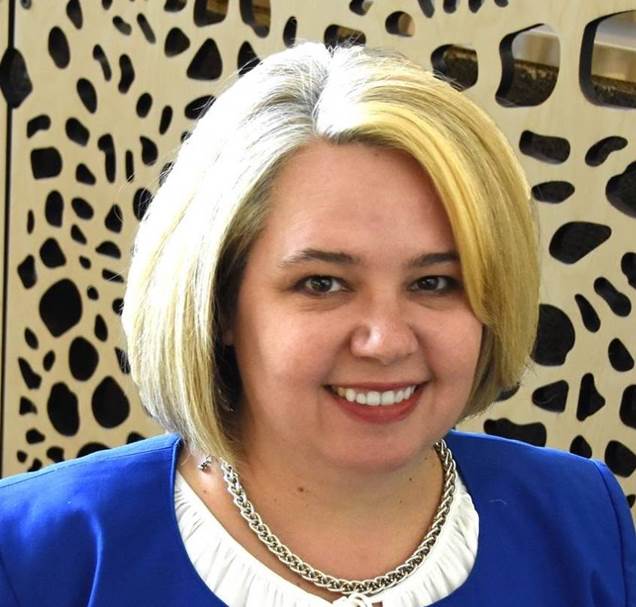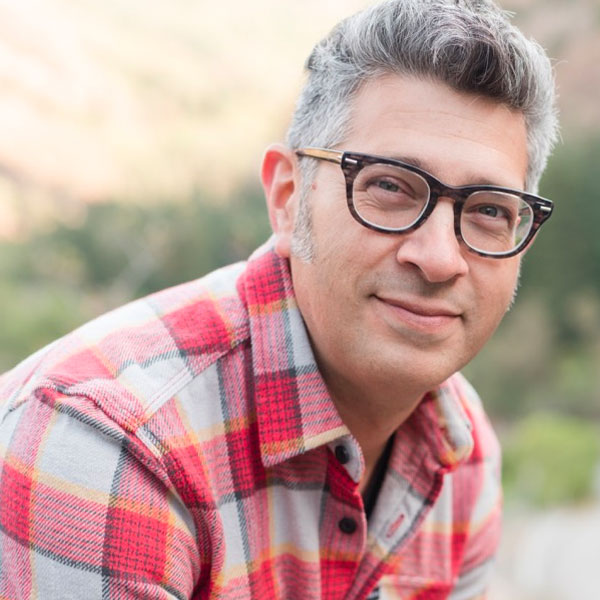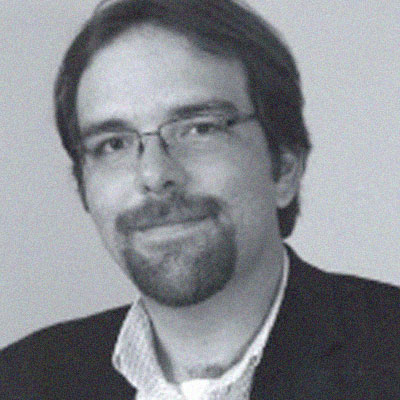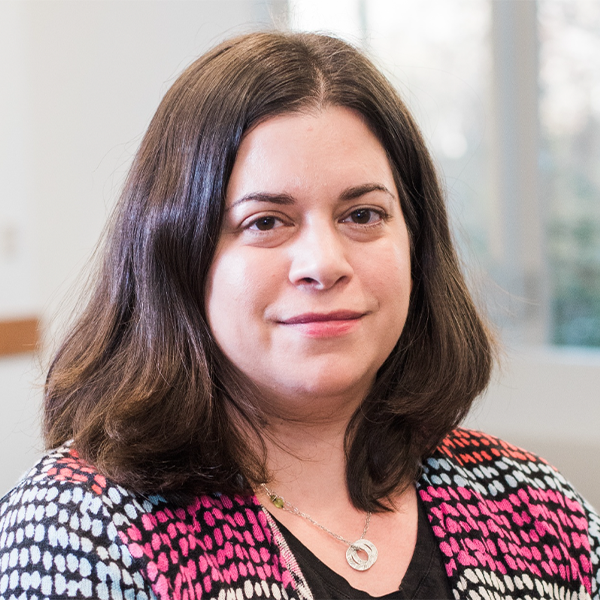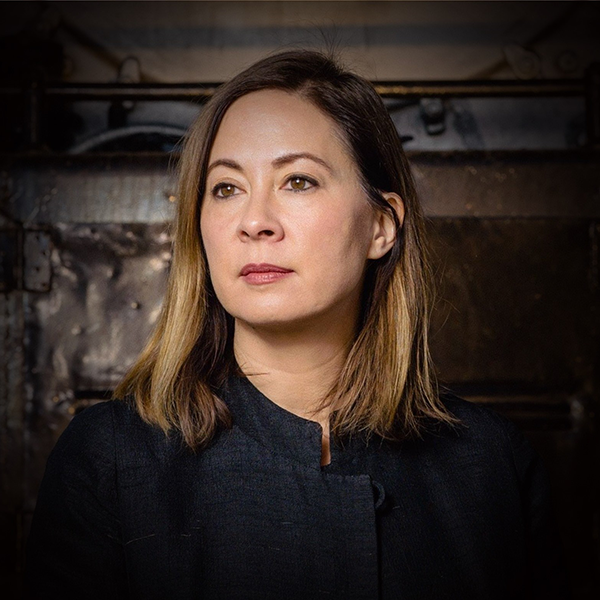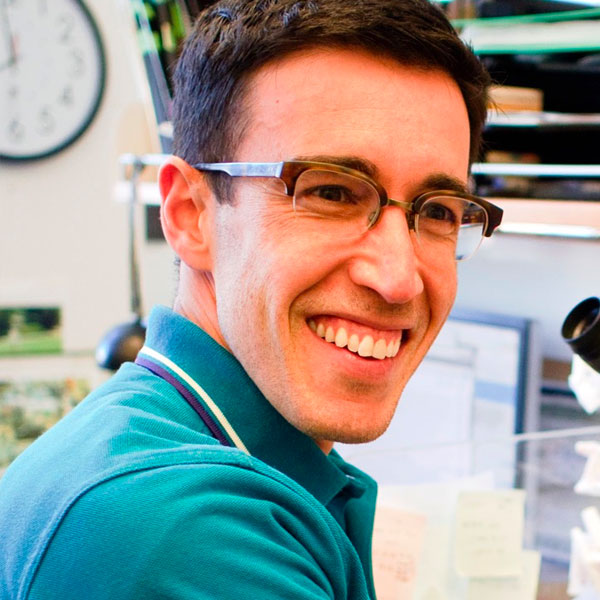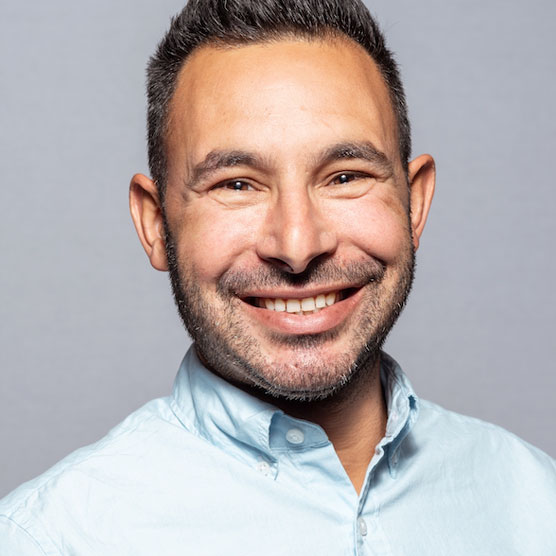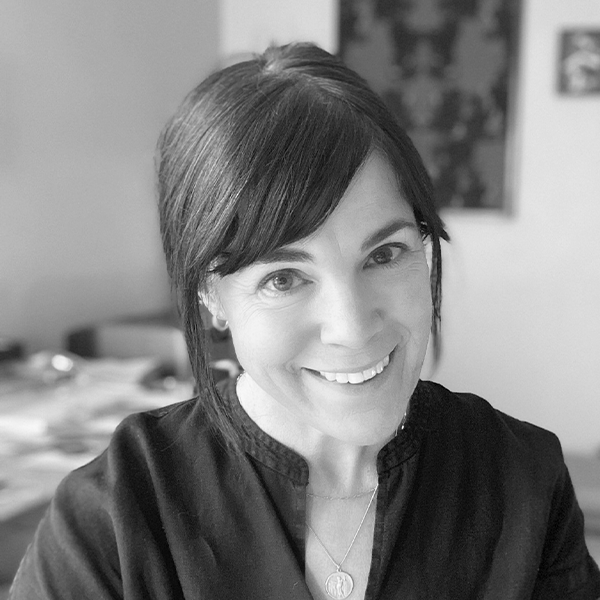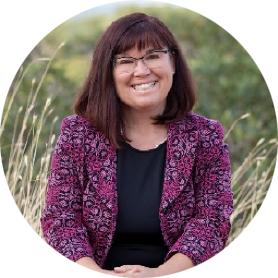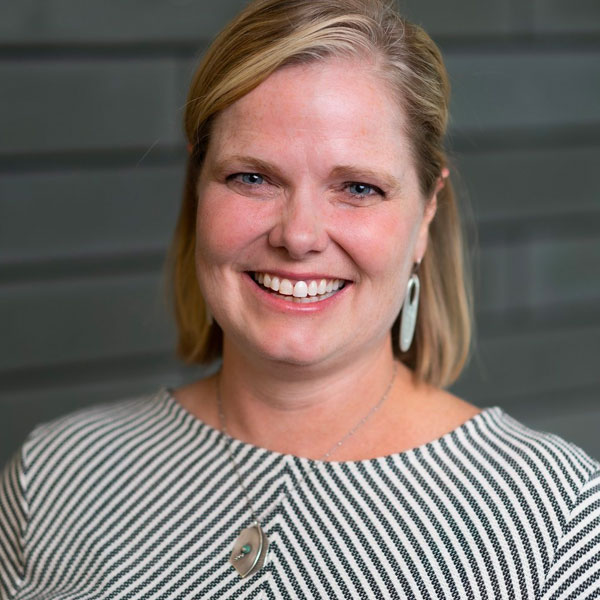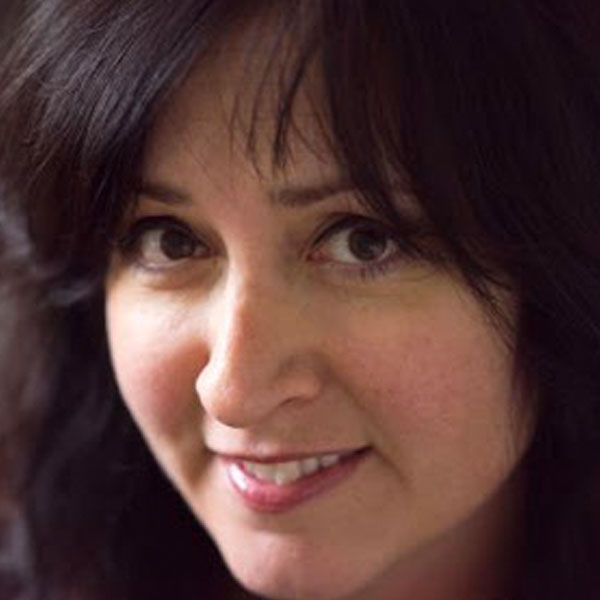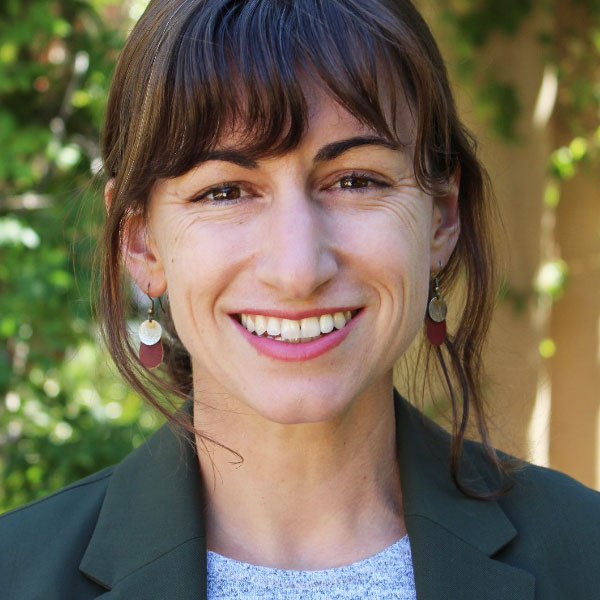
Faculty Fellows: Past and Present
2025 Faculty Fellows
Michael Abrahamson
Michael Abrahamson is an award-winning architectural historian and critic whose research explores the materiality of buildings and the methods of architectural practice across the twentieth century. Through these lenses, his writing reveals the systems of creativity, subordination, and legitimation that undergird the creation of architecture in the professional office and on the construction site. His Ph.D. dissertation at the University of Michigan centered on four critical projects by the late modernist architectural firm Gunnar Birkerts and Associates, in an attempt to square the assertions of authorial individuality proferred by its figurehead with the day-to-day bureaucratic work of those he employed. He is currently at work on a book project based on this research titled The Introspective Professional: Practicing Architecture Between Genius and Bureaucracy. The book will intertwine methods from business and labor history with cultural studies to narrate the history of post-WWII practice in the United States, using Gunnar Birkerts and Associates as its primary case study.Michael published the peer-reviewed research article "Actual Center of Detroit" in the Journal of the Society of Architectural Historians, which unpacked the distinctive design for that city's General Motors Building prepared by Albert Kahn Associates. He received the Society of Architectural Historians' Founders Award for this article in 2020. His writing has appeared in the journals San Rocco, Pidgin, Project Journal, and the Journal of Architectural Education, the magazines The Architectural Review, CLOG and Take Shape, as well as the newspaper The Sunday Times (London). In addition, Michael has published exhibition catalog essays about the ideological and political aspects of the architectural style known as Brutalism for the Deutsches Architekturmuseum Frankfurt's SOS Brutalism, as well as the use of concrete panel construction methods in the United States for ArkDes Stockholm's Flying Panels. He co-edited issue VIII of the University of Utah School of Architecture's journal Dialectic on the theme of subverting, which received a publication grant from the Graham Foundation for Advanced Studies in the Fine Arts.
Abrahamson's work at the Center resulted in the manuscript of a book chapter for the book Master Plan: Soft Power and the Politics of Architectural Expertise, under contract with Princeton University Press.
Fred Adler
Fred Adler is a professor in Department of Mathematics and the School of Biological Sciences. He is a mathematical biologist with particular interest and expertise in models of self-organized dynamics and application of ecological and evolution principles across biological scales. He is the author of two textbooks, Modeling the Dynamics of Life: Calculus and Probability for the Life Sciences (Brooks/Cole Publishing) and Urban Ecosystems: Ecological Principles for the Built Environment (Cambridge University Press). Professor Adler will use the fellowship to draft a book on the unifying concept of Concentration in ecology, biology, economics, and the arts.
Adler's work at the Center resulted in a book to be published in late 2025.
Lisa Henry Benham
Lisa Henry is an associate professor in the Department of Architecture and Chair of the School of Architecture. Her research combines traditional scholarly production with experimental design projects. Professor Henry combines architectural theory and literary analysis with a black feminist methodology to explore how literature specifically focused on the American landscape can inform architectural and activist practices. Professor Henry Benham will develop a research plan focused on the role of interdisciplinary research in the development of Design Justice and activist architectural practice.
Henry Benham's work at the Center included the research design for Design Justice working on articles supporting promotion to full professor.
Lauren Birgenheier
Lauren Birgenheier is an Associate Professor in the Geology and Geophysics Department. She specializes in reconstructing ancient depositional environments recorded in sedimentary rocks. In particular, at Taft-Nicholson she will be writing a paper that critically evaluates the deposition of mudstones or shales in ancient oceanic environments. Professor Birgenheier will develop a field-based geoscience teaching module that centers on the unique geologic surroundings of the Taft-Nicholson Center. She will develop parallel versions of this teaching module for two different learning audiences - undergraduate geoscience majors and visitors to the Taft-Nicholson Center from all backgrounds.
Birgenheier's work at the Center included work on a paper and the generation of information for the Center including a short summary of the surrounding geology for education and visitors.
Brenda Bowen
Brenda Bowen is a professor in the Department of Geology and Geophysics. Her research as an interdisciplinary geoscientist focuses on how changing environmental conditions influence the composition of sediments, authigenic minerals, and fluids in both modern dynamic systems and ancient lithified strata. Professor Bowen is collaborating with Professor Wischer and will prepare for an exhibition of Wischer’s sculptural work that is inspired by Bowen’s biophysical research which focuses on the landscape of the Bonneville Salt Flat. They will develop and write five-year plan for art-science collaboration.
Bowen's work at the Center included a writing project in conjunction with Wendy Wischer, developing a five year art and science collaboration plan, and resulted in the collaborative exhibition Evaporated and the corresponding paper, Evaporated - Explorations in Art, Science, and Salt Leonardo, Vol.56, No 3, pp.231-236 2023
Tallie Casucci
Tallie Casucci, MLIS, is an Associate Librarian, specializing in STEM research and teaching topics, including literature reviews (systematic and scoping reviews), intellectual property (patents and trademarks), biomedical entrepreneurship, evidence-based practice, and library-related research, collections, and services.
Casucci's work at the Center resulted in a full manuscript draft and journal submission regarding a project in the Ascent Archive podcast and the Everett L. Cooley Oral History Project. This article will be published in Preservation, Digital Technology and Culture
James Gagnon
James Gagnon is an assistant professor in the School of Biological Sciences and holds a Mario Capecchi Endowed Chair in Biology. His research focuses on vertebrate development and adult tissue homeostasis through the lens of the lineage tree and studies variability in the vertebrate lineage tree - how it is compensated for and how it can lead to individuality. Professor Gagnon will develop a new research stream based on an active topic in his research lab. Briefly, this research stream will evaluate new CRISPR-Cas genome editing tools in zebrafish embryos.
Gagnon's work at the Center included the development of a research project for SRI and for the NSF Career grant submission, resulting in the implementation of of large SRI research stream engaging 15 students per year, as well as 1 article and 1 grant submission, funded for $3million.
Chris Lippard
Peter Lippert
Peter Lippert is an associate professor in the Department of Geology and Geophysics. His Research uses field study in conjunction with paleomagnetic, rock magnetic, collaborative stratigraphic, geochemical, and geochronologic approaches to investigate a wide range of geological puzzles. It utilizes the unique information encoded in the magnetic and chemical properties of geological materials to understand tectonic, paleoclimate, and paleoecological processes, and to recognize feedbacks between geodynamics, climate change, and surface processes. Professor Lippert will immerse himself in the geology and resources of the valley and will explore access to and appropriateness of locations for field instruction. He will investigate the feasibility of a field course and begin the groundwork for new instructional modules.
Michael Mejia
Michael Mejia is an associate professor in the Department of English. He is the author of the novels TOKYO and Forgetfulness, and his fiction and nonfiction have appeared in many journals and anthologies, including AGNI, DIAGRAM, The Collagist, Seneca Review, and My Mother She Killed Me, My Father He Ate Me. Professor Mejia will work on Conquests of Mexico, an examination of Latin American migration in the context of the personal and the historical. Through fragments of fiction and nonfiction, Conquests weaves together three journeys in a grand vision of movement across América.
Mejia's work at the Center resulted in the book Conquests of Mexico, publication date pending.
Ofer Rog
Ofer Rog is an Assistant Professor in the School of Biological Sciences. Their research focuses on how the genetic material, packaged in chromosomes, is being delivered from one generation to the next. Professor Rog will develop a proposal for a new course targeted to graduate students in Biology and in Design and Architecture. The course will use 3-dimensional printing to model cell-biological processes involving self-assembly, during which many similar components interact with each other to create a large cellular structure.
At the Center, Rog developed a proposal for a series of workshops: Re-imagining a cellular space occupied by condensates 1-day symposium followed by a 2-day workshop October 11-13, 2022
Rebecca Utz
Rebecca Utz is an associate professor in the Department of Sociology. She researches lifecourse sociology, focusing on health and aging in America. Specifically, questions about how families manage end-of-life and chronic disease care transitions, developing and testing interventions that maximizes the benefits of respite time use for caregivers to persons with Alzheimer's Disease and related dementias. Professor Utz will complete two manuscripts, “Supporting Widowed Persons: An Individually-Tailored Bereavement Intervention Based on Dual Process Model” and “Redefining Respite Care: Lessons Learned from the COVID-19 Pandemic”
As a result of work at the Center, Utz completed four submitted papers and submitted four grants proposals.
Wendy Wischer
Wendy Wischer is an Associate Professor in the Department of Art & Art History. Her creative work highlights environmental issues and seeks to translate data into personal meaning. Through interdisciplinary research, often in collaboration with scientists and engineers, it addresses our environmental crisis in hopes of finding impactful ways to connect people more deeply with the environments they live in and each other. Professor Wischer is collaborating with Professor Brenda Bowen and they will work on drafting a paper around their Art and Science exhibition of Wischer’s sculptural work that is inspired by Bowen’s biophysical research on the landscape of the Bonneville Salt Flats. They will also develop ideas for future art-science collaborations.
Wischer's work at the Center included a writing project in conjunction with Brenda Bowen, developing a five year art and science collaboration plan, and resulted in the collaborative exhibition Evaporated and the corresponding paper, Evaporated - Explorations in Art, Science, and Salt Leonardo, Vol.56, No 3, pp.231-236 2023
Lynne Zummo
Lynne Zummo is an assistant professor in the Department of Educational Psychology. Her research investigates how cognitive, social, and cultural factors interact to influence learning of climate change science in K-12 classrooms and the Natural History Museum of Utah. Professor Zummo will advance this research through writing that theorizes about quantitative data practices, or how people make sense of numerical information within their social and cultural contexts. Bridging cognitive theories with sociocultural concepts, this writing will theorize about learning experiences that can foster data practices in ways that support public alignment with science.
Zummo's work at the Center included a writing project to build the core of an NSF AISL grant proposal.
Tom Alberts
Tom Alberts studies probability theory and its intersection with statistical mechanics, along with its application to statistics. His most prominent focus is on two-dimensional conformally invariant systems, but also has interests in random walks in random environments, directed polymer models, last passage percolation, and random matrix theory. Alberts received his PhD in 2008 from New York University and completed postdocs at the University of Toronto and California Institute of Technology before joining the U's Mathematics Department in 2014.
Tom Alberts is an associate professor in the Department of Mathematics. His main research interests are in Probability Theory and Statistical Mechanics with some previous experience in Statistics. He will use his time at the Taft-Nicholson Center to complete a book on Gaussian analysis that is geared towards senior undergraduate and beginning graduate students. He will also be completing research papers on random matrix theory for composite materials.
Alberts' work at the Center resulted in the paper Calculus on Gauss Space: An Introducation to Gaussian Analysist.
Kevin Coe
Kevin Coe is an Associate Professor in the Department of Communication at the University of Utah. Professor Coe’s research and teaching focus on the interaction of American political discourse, news media, and public opinion, with a particular interest in the U.S. presidency and issues of identity. He is the author of more than 40 academic articles and chapters, which have appeared in such venues as Communication Monographs, Communication Research, Journal of Communication, Public Opinion Quarterly, and The Oxford Handbook of Political Communication. He is the coauthor, with David Domke, of The God Strategy: How Religion Became a Political Weapon in America (Oxford, 2008), and has written opinion pieces for a wide range of news outlets, including the Chicago Tribune, Baltimore Sun, and Time.com. He holds a Ph.D. in Speech Communication from the University of Illinois, and an M.A. and B.A. from the University of Washington.
Coe's work at the Center included collaboration with Rachel Griffin on the co-authored
book project Marginalization and the Modern Presidency: Presidential Communication, Identity Politics,
and the Battle for "Real America" and resulted in an article published in Social Media and Society.
Rachel Griffin
Rachel Alicia Griffin, Ph.D. is an Associate Professor of Race and Communication in the Department of Communication at the University of Utah. As a critical/cultural scholar who has earned several honors, her research interests span Black feminist thought, critical race theory, sexual violence, and the social institutions of sport, media, education, and the U.S. presidency. Dr. Griffin has published in journals including Women’s Studies in Communication, Critical Studies in Media Communication, the International Journal of Qualitative Studies in Education, the Journal of International and Intercultural Communication, and Communication, Culture, & Critique. She is also the co-editor of Adventures in Shondaland: Identity Politics and the Power of Representation (Rutgers University Press, 2018). Her pending research project is a co-authored monograph titled Marginalization and the Modern Presidency: Presidential Communication, Identity Politics, and the Battle for “Real’ America. Exceptionally committed to sustaining synergy between research and service, Dr. Griffin has delivered well over 100 anti-sexual violence and Inclusive Excellence presentations nationally and internationally.
Griffin's work at the Center included collaboration with Kevin Coe on the co-authored
book project Marginalization and the Modern Presidency: Presidential Communication, Identity Politics,
and the Battle for "Real America" and resulted in an article published in Social Media and Society.
Isabel Dulfano
Isabel Dulfano, a member of the Department of World Languages and Cultures, teaches classes on a wide range of topics, including Business Spanish, Indigeneity in the Americas, and contemporary Latin American feminist literature. Her recent research interest has examined the autoethnography, agency, activism, and self-representation of Indigenous women in the Americas.
While at the Center, Dulfano worked on the book Walking on (Y)our Sacred Path: IndigeNative American Women Speak Out on Activism, published 11/30/2022.
Dr. Lisa Taylor-Swanson
Dr. Lisa Taylor-Swanson, PhD, MAcOM, EAMP is an Assistant Professor in the College of Nursing at University of Utah. She is a native of Salt Lake City and completed an Honors BS in Psychology with a minor in Women’s Studies. Her research focuses on the improvement of chronic pain with an emphasis on midlife women’s health, gender disparities of the opioid epidemic, and the evaluation of traditional East Asian medicine interventions (including acupuncture, Chinese herbal medicine, and moxibustion). She has completed a Master’s degree in Acupuncture & Oriental Medicine (Seattle Institute of East Asian Medicine - SIEAM) and a PhD in Nursing Science (University of Washington). Dr. Taylor-Swanson previously provided acupuncture and Chinese herbal medicine in private practice for over 17 years with an emphasis on women’s health and the treatment of male- and female-factor infertility. Dr. Taylor-Swanson is an avid flamenco dancer and enjoys world music, yoga, hiking, swimming, and skiing.
At the Center, Taylor-Swanson worked on and submitted three grants. Her work during her Fellowship also resulted in the published manuscript: Maternity care for pregant women with opioid use disorder: A review. J. Midwifery Womens Health. 2019. doi: 10.1111/jmwh.13019
Roseanne Warren
Roseanne Warren is an assistant professor in the Department of Mechanical Engineering. Her research in the Advanced Energy Innovations Lab\ investigates new nanomaterial structures and advanced nanofabrication techniques for electrochemical energy storage applications. Her areas of expertise include electrochemical capacitors, sodium-ion batteries, biodegradable energy storage materials, carbon nanotube synthesis, and atomic layer deposition. She will use her time as a Summer Faculty Fellow to complete the first full draft of an engineering design textbook.
Warren's work at the Center in 2022 resulted in the first full draft of engineering design textbook, currently in use, focused on improving the student experiences in the ME capstone program.
Curtis Newbold
Curtis Newbold currently serves as Clinical Associate Professor of Strategic Communication at the University of Utah and is the faculty advisor for the Public Relations Student Society of America (PRSSA). Curtis is a passionate educator, speaker, and award-winning corporate consultant with a research and practitioner background in strategic communication and information design. Curtis is co-author of the textbook Business and Professional Communication: A Human-Centered Approach (Sage, 2025 with Jessie Richards) and is currently writing a book about the socio-cultural impact of educational infographics (Parlor Press). He has published in a range of academic journals and book chapters emphasizing communication and information design, self-directed learning, competency-based education, business communication, and public relations. Curtis has consulted with and delivered over 200 live trainings, webinars, and workshops for diverse multinational companies and government organizations including New York City Department of Health; Utah State Legislature Auditor General; Indeed.com; Discover Financial Services; O'Reilly Media; Havas Health Plus; Mountain America Credit Union; and CollegeBoard.
Curtis is the creator and chief content architect for the popular blog, TheVisualCommunicationGuy.com, and he has developed and taught over 40 different communication courses at universities in the U.S., China, and the Utah Asia Campus in South Korea. Curtis has led graduate student strategic communication projects for non-profits in Peru, South Africa, Cambodia, Morocco, and Iceland. He has a PhD in Rhetorics, Communication, and Information Design (RCID) from Clemson University and BS and MA degrees in English and Professional Communication from Utah State University.
Jeremy Rosen
Jeremy Rosen is an associate professor of English at the University of Utah. He studies contemporary American and global fiction, with an emphasis on genre, the publishing industry, marketplace, literary institutions, and the blurry line between literary and popular fiction. His work has appeared in ASAP/Journal, New Literary History, Contemporary Literature, Post-45, and the Oxford Encyclopedia of Literary Theory. His first book, Minor Characters Have Their Day: Genre and the Contemporary Literary Marketplace, was published as part of Columbia University Press’s “Literature Now” series in 2016. As Summer Faculty Fellow, he will be finishing his book Genre Bending, which considers the adoption of previously “low” forms of genre fiction by esteemed contemporary writers of literary fiction.
Rachel Mason Dentinger
Rachel Mason Dentinger is an assistant professor in the Department of History. Her research focuses on the history of science and technology, particularly biology and medicine. She is currently revising her book project Waging Nature’s War: How the Coevolutionary Theory of Natural Insecticides Made Combatants of Us All, the first historical study of coevolutionary theory. For the duration of her stay at the Taft-Nicholson Center, she intends to rewrite a chapter focused on the biological and historical agency of nonhuman organisms, which considers the way that biologists encounter insects and plants in the field.
While at the Center, Dentinger worked on the book Waging Nature's War: How the Coevolutionary Theory of Natural Insecticides Made Combatants of Us All.
Paisley Rekdal
Paisley Rekdal is the author of four books of nonfiction, and seven books of poetry, including Nightingale, Appropriate: A Provocation, and, most recently, West: A Translation. Her work has received the Amy Lowell Poetry Traveling Fellowship, a Guggenheim Fellowship, an NEA Fellowship, Pushcart Prizes, a Fulbright Fellowship, and various state arts council awards. The former Utah poet laureate, she teaches at the University of Utah where she is a distinguished professor.
Danielle Endres
Danielle Endres is a Professor of Communication and incoming Director of the Environmental Humanities Program at the University of Utah. Her research areas are Environmental Communication, Indigenous Communication, and Rhetorical Studies. Her research projects focus on the rhetoric of environmental and science controversies including nuclear waste siting decisions, climate change, and energy transitions. Her work is guided by principles of environmental justice and focuses on how underrepresented and marginalized groups, particularly Native peoples and nations, engage in environmental advocacy and activism. Endres is the author of Nuclear Decolonization: Indigenous Resistance to High-Level Nuclear Waste Siting (forthcoming November 2023), co-author of Participatory Critical Rhetoric: Theoretical and Methodological Foundations of Studying Rhetoric In Situ, and co-editor of several books, including the Routledge Handbook of Energy Democracy. The National Science Foundation and several fellowships from the University of Utah have funded her research. Endres’ public advocacy and leadership work includes being a member of the State of Utah’s Hazardous Waste and Radiation Control Board and serving as treasurer of the Utah Campaign to Abolish Nuclear Weapons. Outside of work, Endres enjoys walking in the mountains, seeing live music, reading mysteries, and hanging out with her partner, kids, and cat.
Endres' work at the Center included a proposal to increase collaboration between the American West Center, Enviromental Huaminites Program and Taft-Nicholson Center for submission of joint grants. This work in collaboration with Mike Middleton, Melissa Parks, Paisley Rekdal and Mark Bergstrom, resulted in proposals for 9 individual grants, the first being the NEH Connections Implementation Grant 150K September 24.
Michael K. Middleton
Michael K. Middleton is the Associate Dean for Academic Affairs in the College of Humanities. In addition, Michael holds a faculty appointment in the Department of Communication as an Associate Professor of Argumentation & Public Discourse. Michael’s research focuses on rhetoric, argumentation, public discourse, and cultural studies in the contexts of political advocacy and social movements. In addition, Michael has over 25 years of experience competing in and coaching competitive debate and public speaking where he has coached numerous students to the highest ranks of national and international competition. During that time, he has worked with Northern Arizona University, California State University- Long Beach, the University of Utah, and students from dozens of high schools throughout the country. Michael is currently a member of the National Communication Association's Committee on International Discussion and Debate and is Secretary of the International Forensics Association. Previously, has also worked as a consultant for the International Debate Education Association, as well as as Past President of the Western Forensics & Argumentation Association and the National Parliamentary Debate Association.
Middleton's' work at the Center included a proposal to increase collaboration between the American West Center, Enviromental Huaminites Program and Taft-Nicholson Center for submission of joint grants. This work in collaboration with Danielle Endres, Melissa Parks, Paisley Rekdal and Mark Bergstrom, resulted in proposals for 9 individual grants, the first being the NEH Connections Implementation Grant 150K September 24.
Chris Ingraham
Chris Ingraham is an Associate Professor of Communication at the University of Utah, and a core faculty member in Environmental Humanities. His work as an active teacher and researcher engages with a range of ideas from across the theoretical humanities, including media aesthetics, environmental communication, and rhetorical theory. He is invested in critical approaches to the material, aesthetic, and affective practices that configure the environments we create and inhabit. His books include LEGOfied: Building Blocks as Media (Bloomsbury, 2020), Gestures of Concern (Duke University Press, 2020), and Rhetorical Climatology (Michigan State University Press, forthcoming 2023).
Ingraham's writing retreat at the Center resulted in the manuscript Decentering the Human, sent to University Press.
Seth Keeton
Erika R. George
Erika R. George is the Samuel D. Thurman Professor of Law at the University of Utah’s S.J. Quinney College of Law, and she directs the Tanner Humanities Center. She is the author of Incorporating Rights: Strategies to Advance Corporate Accountability (Oxford University Press, 2021). Her research examines the responsibilities of multinational corporations to respect international human rights and various efforts to hold corporations accountable for alleged rights violations. She teaches constitutional law, international human rights law, international environmental law, international business transactions, international trade, and seminars in corporate citizenship. She earned her B.A. with honors from the University of Chicago and her J.D. from Harvard Law School, where she served as Articles Editor of the Harvard Civil Rights-Civil Liberties Law Review. She also holds an M.A. in International Relations from the University of Chicago. Her recent scholarship has appeared in the California Law Review, the Michigan Journal of International Law, the New York University Journal of International Law and Policy, the Berkeley Journal of Journal of International Law, and the annual proceedings of the American Society of International Law. She is a Fellow of the American Bar Foundation, a member of the American Law Institute, a Trustee of Earthjustice, and a member of the Fair Labor Association Board. Previously, she served on the Executive Board of the American Bar Association Center for Human Rights. Before becoming a professor, she was a fellow with Human Rights Watch in New York and practiced commercial litigation with Jenner & Block in Chicago. She is a frequent speaker on human rights, sustainability, equity and diversity, environmental justice, and corporate social responsibility. At the Tanner Humanities Center she identifies and oversees implementation of long and short-term strategic opportunities to enhance the Center’s public humanities engagement efforts and the Center’s support for academic humanities research in collaboration with staff, faculty, board members, leadership of the OC Tanner Foundation, and other stakeholders. She builds collaborative alliances with campus and community stakeholders, develops new program offerings, and advocates locally, nationally, and globally to highlight the centrality of the humanities to understanding the human experience, the challenges humanity confronts, and the opportunities revealed by humanist modes of inquiry to improve the human condition.
Carol Sogard
Carol Sogard was born and raised in Detroit, Michigan, and currently resides in Salt Lake City,
Utah. She is a designer, educator, and community-engaged artist, that is committed
to a multi-faceted artistic practice. Although these areas of creative research are
distinct in output, they purposefully overlap them under the theme of sustainability.
Her work sheds light on the environmental impacts of plastic waste, habitat destruction,
industrial pollution, and climate change.
,She works with a variety of mediums, including reclaimed plastic bags, found materials,
in addition to digitally printed adhesive papers and fabric. She integrates analog
and digital collage processes, weaving, and sewing into the creation of works that
are rich and complex in layered details. The design artifacts that she creates instill
reflection and inspire viewers and users to contemplate their relationship with the
natural world and consider how human behavior dramatically impacts it.
Sogard’s design work and textile artifacts have been honored and published by the
AIGA, How Books, Print Magazine, Rockport Publishers, Utah Division of Arts & Museums,
and exhibited in galleries nationwide. She earned her MFA in Graphic Design from the
University of Utah. Since 1999, she has served as Professor of Graphic Design and
Graphic Design Program Chair at the University of Utah in the Department of Art and
Art History.
Sogard's work at the Center focused on plant life and the ecosystems in and around Montana's Centennial Valley.
José Francisco Gutiérrez
José Francisco Gutiérrez is an assistant professor in the Department of Education, Culture & Society. He researches the contemporary and historic role mathematics has played in limiting students’ educational opportunities, and he is devoted to creating healthy community-oriented projects that position mathematics in ways that strengthen students’ identities and connections to their families. At the core of Dr. Gutiérrez’s scholarship is a commitment to working with historically marginalized communities. For instance, his present historical work is on Indigenous students, and he is studying the ways mathematics impacts emergent bi-multilingual students. He will use his residency to complete an archival research paper analyzing how the United States used mathematics curriculum in Indian boarding schools between 1879-1930 to enact a policy of cultural assimilation that coincided with land dispossession.
Gutiérrez's work at the Center resulted in two manuscripts submitted to the Journal for Research in Mathematics Education and Educational Studies in Mathematics. He also provided a Science Wednesday lecture to the wider Centennial Valley Community.
Leandra Hernandez
Dr. Leandra H. Hernández (PhD, Texas A&M University) is an associate professor and Director of Graduate Studies in the Department of Communication at the University of Utah. She is a queer critical/feminist health and media studies scholar with applied praxis contributions to teaching, research, and service. She enjoys teaching health communication, gender studies, and journalism/media studies courses. She utilizes Chicana feminist & qualitative approaches to explore Latina/o/x cultural health experiences, Latina/o/x journalism and media representations, and reproductive justice and gendered violence contexts. She is the co-author of one monograph and co-editor of six co-edited volumes. Further, her research is published in several books, as well as in the journals Health Communication, Frontiers in Communication, Women's Studies in Communication, Journal of Media and Religion, Communication Research, QED: A Journal in GLBTQ Worldmaking, and Departures in Critical Qualitative Research. Most recently, she is the recipient of the 2024 National Communication Association Women's Caucus Francine Merritt award in recognition of outstanding contributions to the lives of women in communication, particularly through mentorship, service, advocacy, pedagogy, and scholarship. During her fellowship this summer, she will be working on her project entitled Queer Worldmaking in the Wasatch Range: An Oral History Project with the Salt Lake Area Queer Climbers Community.
Joanne LaFleur
Joanne LaFleur, PharmD, MSPH, is Associate Professor of Pharmacotherapy in the University of Utah College of Pharmacy, Associate Investigator at the Salt Lake City Veterans Affairs Healthcare System Informatics, Decision and Enhancement and Surveillance (IDEAS) Center, and Director of two Centers in the Department of Pharmacotherapy, University of Utah College of Pharmacy: The Drug Regimen Review Center (DRRC), which provides evidence synthesis services to support the Utah Department of Health and the Utah Medicaid Drug Utilization Review (DUR) Board and Pharmacy and Therapeutics (P&T) Committee; The Data-driven Collaborative of Informatics, Pharmacoepidemiology, and Health Economics Researchers (DeCIPHER) conducts pharmacoepidemiology research in support of a variety of sponsors all over the world. For more than a decade, Joanne has taught courses in epidemiology, pharmacoepidemiology, biostatistics, evidence synthesis, and pharmacoeconomics to future pharmacists. Joanne is currently taking her first sabbatical and hopes to use the time to employ her expertise in both epidemiology and evidence synthesis to examine the systematic errors inherent in the generation and use of medical evidence in healthcare systems worldwide.
LaFleur's writing retreat at the Center included work on seven papers. Publication dates were pushed back due to medical leave shortly after visit, papers still in process.
Anna Neatrour
Anna Neatrour is an associate librarian at the Marriott Library. She is the Digital Initiatives Librarian and Interim Head of Digital Library Services. She manages the Digital Library, Utah Digital Newspapers, Digital Preservation, and Digital Operations, supporting digitization and access to primary sources for the benefit of the University of Utah and the public. Her research interests include name authority control in digital libraries, collaborative digitization, the intersection of digital humanities and digital libraries, and developing collections as data. She has published in journals such as the Journal of Library Metadata, Information Technology and Libraries, and Digital Library Perspectives. She is collaborating with Rebekah Cummings and other co-authors on writing a monograph accepted for publication by the American Library Association on the topic of Digital Library Outreach and Instruction.
Neatrour's work at the Center included first authorship on a co-authored book project with Rebekah Cummings, The High-Impact Digital Library: Innovation Approaches for Outreach and Instruction, published Dec 2024 by ALA Editions in collaboration with Core ISBN#9798892555814
Rebekah Cummings
Rebekah Cummings is the Interim Director of Digital Matters at the University of Utah Marriott Library where she coordinates digital humanities research, teaching, and support. Prior to her current position, Rebekah was the Assistant Director of the Mountain West Digital Library and the Data Management Librarian at the Marriott Library. In 2018 – 2019, Rebekah served as the Utah Library Association President, and she currently serves as the Utah State Library Board Chair. Rebekah’s research interests include digital humanities, data management, copyright, collections as data, and digital literacy. She has published in journals such as International Journal on Digital Libraries, International Journal of Digital Curation,Digital Humanities Quarterly, Information Technology and Libraries, and Journal of Library Administration and is currently collaborating with Anna Neatrour and other co-authors on a monograph accepted for publication by the American Library Association on the topic of Digital Library Outreach and Instruction.
Cummings' work at the Center resulted in a co-authored book project with Anna Neatrour, The High-Impact Digital Library: Innovation Approaches for Outreach and Instruction, Published Dec 2024 by ALA Editions in collaboration with Core ISBN#9798892555814
Jared Branch
Jared Branch is an Assistant Professor (Lecturer) in the Department of Psychology. He spends most of his time teaching, including courses in Research Methods, Cognitive Psychology, Cognitive Neuropsychology, and Brain & Behavior. He is currently writing a co-authored cognitive psychology textbook tentatively labeled “A Perfectly Imperfect Mind: Using Cognitive Psychology to Explain Human Experience” that will be published as an Open Education Resource (OER) and be freely available to students. His research lab is centered around mentoring undergraduate students through the research process. He is a member of the Collaborative Replications and Education Project (CREP) and Psychological Science Accelerator (PSA). This involvement allows for undergraduates to become familiarized with the research process and gain co-authorship in published manuscripts. Current work in his lab focuses on episodic counterfactual thinking—thoughts about how the personal past could have been different—and the development of a scale that assesses the frequency of an individual’s counterfactual thoughts. He plans to use this fellowship to write the manuscripts for this counterfactual thinking scale as well as the outcomes and lessons learned of an NSF grant-funded workshop which sought to help instructors incorporate CREP into their classroom. Finally, he is interested in spending time in Montana to explore new avenues for his research, specifically climate change, environmental advocacy, and cognitive interventions aimed at lowering one’s carbon impact.
Dalaki Livingston
Dalaki Livingston received his doctorate from the University of Oklahoma and is continuing his research at the University of Utah. He is considered a community scholar that focuses on the various facets of creating, supporting, and facilitating community driven projects and narratives. Within community, he ties his research together.
Deliberation and Indigenous Methods started with his tenure at OU; he worked in various capacities with the Center for the Ethics of Indigenous Genomic Research (CEIGR) and the Genomics and Ethics Program for Native Students (GEN). With CEIGR, he focused on projects surrounding Indigenous Deliberations with several partners. While working with GEN, his training revolved around Indigenous rights and sovereignty. Navigating academia and Indigenous communities is complicated largely due to historical, colonial, and systemic inequalities. He hopes to help others navigating those spaces, both within Indigenous communities and academia. At OU, he sought ways to combine Indigenous methods with deliberative theory for a holistic understanding of participatory democracy within Indigenous deliberation.
In addition to his work with Indigenous communities, he also critically analyzes representation of Indigenous peoples in pop culture: television, movies, books, graphic novels, video games, or table-top roleplaying games. He also explores the areas of collaborative storytelling and how non-western conceptualizations of play and storytelling can help explore intricate and complex societal issues while also building communicative practices in small group settings. He takes the lessons of community building in research and applies it into the table-top roleplaying game he has co-created.
Health Communication in the context of community started from growing up in small town in southern Utah, Milford. He is the 6th child of 9 and grew up conceptualizing health as a community understanding and saw first hand how small towns come together in hardship and medical upheaval to help one another. He not only recognizes the importance of this phenomenon but seeks ways to bolster small, rural communities in campaigns to improve health.
Dalaki Livingston went to school at Southern Utah University and University of Oklahoma. He is a member of the Navajo Nation and has 8 siblings. He currently works at the University of Utah as a Post-Doc research fellow. He enjoys board games, tabletop roleplaying, as well as most forms of animation. He wants to help build spaces and places for Indigenous folks in University.
Livingston's work at the Center included writing two articles and one book chapter. Articles were submitted to The American Journal of Bioethics and the Journal of Deliberative Democracy. Book chapter to be published by the University of Iowa Press.
Roseanne Warren
Roseanne Warren is an Associate Professor in the Department of Mechanical Engineering at the University of Utah. She received her PhD in mechanical engineering from the University of California Berkeley in 2015 and joined the University of Utah faculty in 2016. During her PhD, she was introduced to the exciting world of the nanoscale. Dr. Warren’s current research interests lie at the intersection of nanofabrication, electrochemistry, and nanoscale mechanics testing. Her research group is exploring new ways of patterning at sub-100 nm length scales, developing new techniques for measuring micro- and nanoscale mechanical properties of battery materials, and inventing new ways of charging batteries from their environment. Dr. Warren’s teaching portfolio includes two lab-based courses in the University of Utah Nanofab (“Micromachining” and “Nanofabrication”) in which students learn the fundamentals of patterning semiconductor devices. Dr. Warren is a member of The Electrochemical Society and an affiliate of Lawrence Berkeley National Laboratory.
José Francisco Guitiérrez
José Francisco Guitiérrez s an Assistant Professor in the Department of Education, Culture & Society at the University of Utah. He is a critical scholar focused on mathematics education and is committed to advancing social justice and community engagement. His research seeks to understand and challenge traditional ideas about teaching and learning mathematics that contribute to unequal access, experiences, and opportunities for students from diverse backgrounds. To achieve this, he collaborates with teachers, students, and their families to develop community-oriented projects that position mathematics in ways that enhance students' identities and strengthen their connections to their communities.
Randy Silverman
Randy Silverman is the Head of Preservation at the University of Utah’s J. Willard Marriott Library, a faculty position he has held for 32 years. His disaster planning work led to an invitation from UNESCO to participate in a workshop in 2006 called “Preservation and Access to Documentary Heritage in Asia and the Pacific” held in Cheongju, South Korea – his introduction to Korean early printing. Silverman has 122 publications and has presented lectures or workshops in 33 states and 13 countries outside the U.S. He has received the American Library Association’s Banks-Harris Preservation Award (2013), a Fulbright Specialists award (2014), and the Utah Academy of Sciences, Arts, and Letters Gardner Prize (2016).
Katharine S. Walter
Katharine S. Walter is an infectious disease epidemiologist whose research leverages pathogen evolution to study pathogen transmission. Her current work focuses on tuberculosis and pathogens linked to rapid climate change in the American West. Alongside her research, she writes about health and environmental change for The Nation, Nautilus, and elsewhere. At the Taft Nicholson Center, she will write about the emergence of Valley fever, a fungal disease found across much of the American West. Valley fever is expanding into landscapes we have utterly transformed—and, like many of the health impacts of climate and landscape changes—it most severely impacts those who work or live outside. At the leading edge of what has been considered the endemic area, like southern Utah, Valley fever is rarely discussed and may be often misdiagnosed.
She is an Assistant Professor in Epidemiology and research affiliate at the Natural History Museum of Utah.
Katie Walter's work at the Center included writing of an article on the infectious
disease of Valley Fever, in collaboration with Native Historians Darren Parry and
Rose Ann Abrahamson. The article has been submitted to Noema Magazine, publication
pending.
David Carter
David Carter David Carter is an associate professor of public policy and administration at the University of Utah and Director of the university’s School of Public Affairs. His research examines public policy design, public program administration, and civic action across a range of contexts, including organic food regulation in the U.S., child welfare services, local government, and to collective action among climbers. David teaches classes in public policy theory, policy analysis, research design, and governance and the economy for Master of Public Policy and Master of Public Administration students. In his free time, David likes to climb rocks, ice, and mountains, back country ski, run trails, fly fish, and paraglide.



